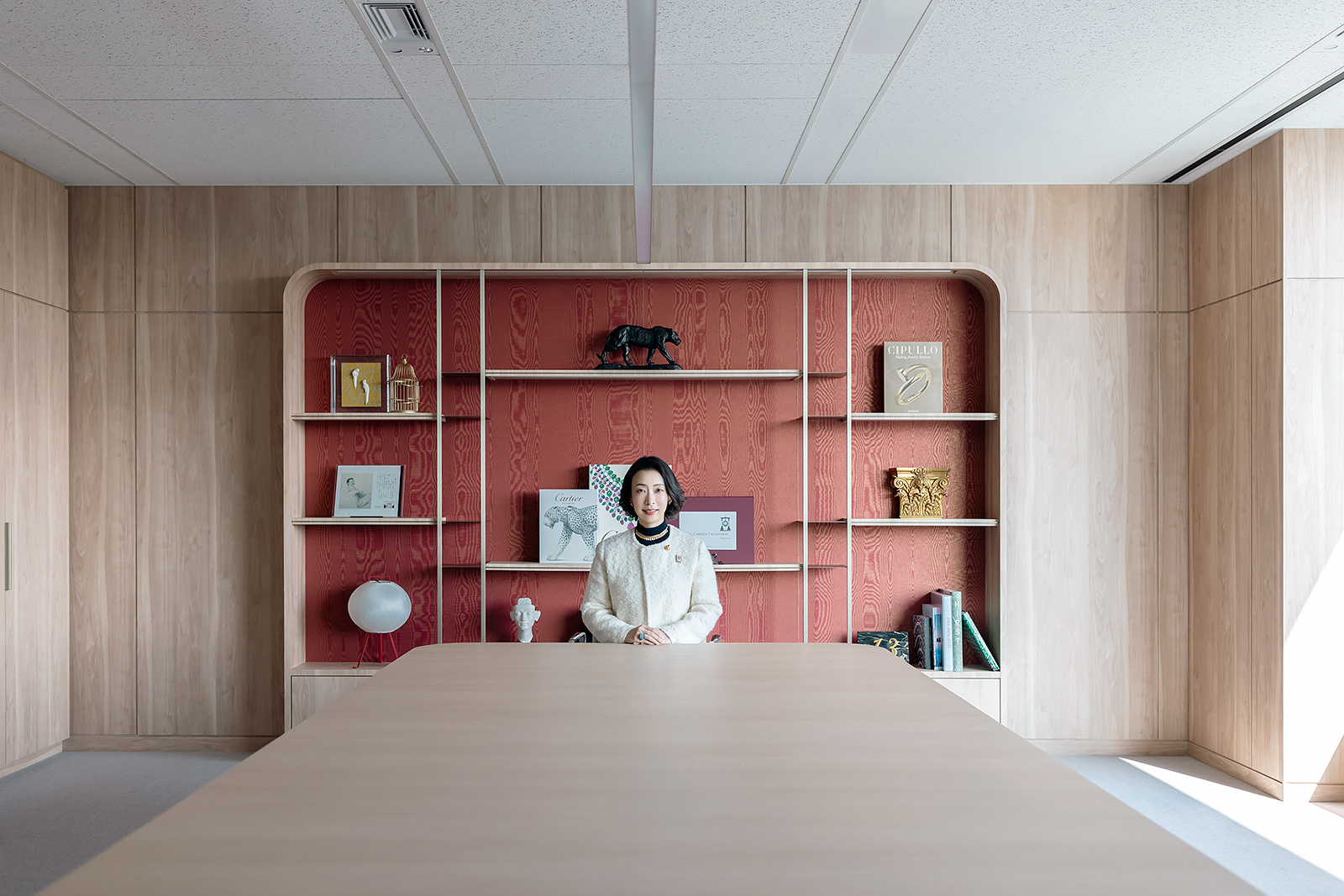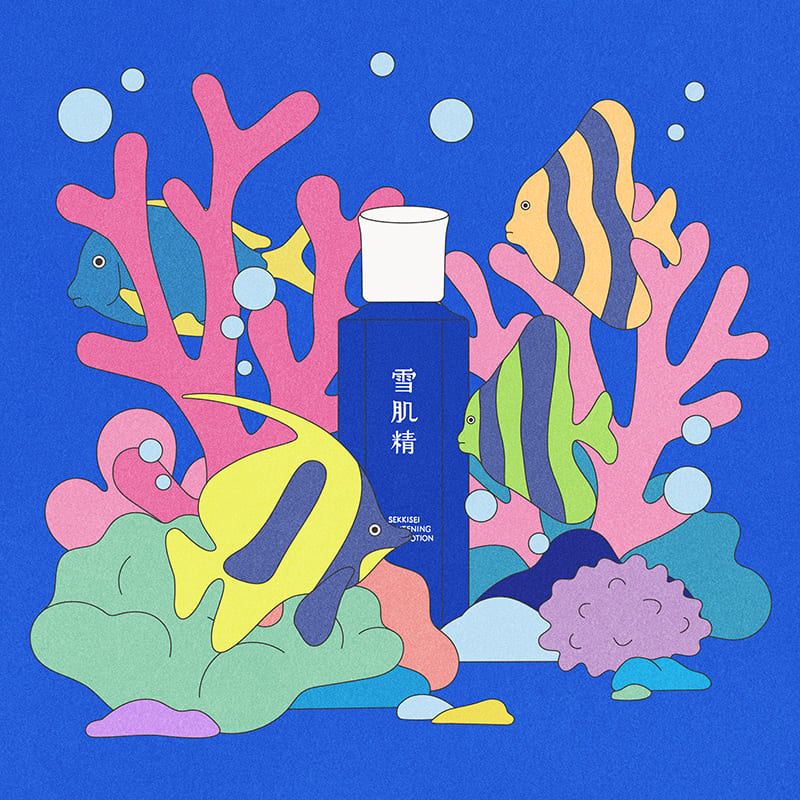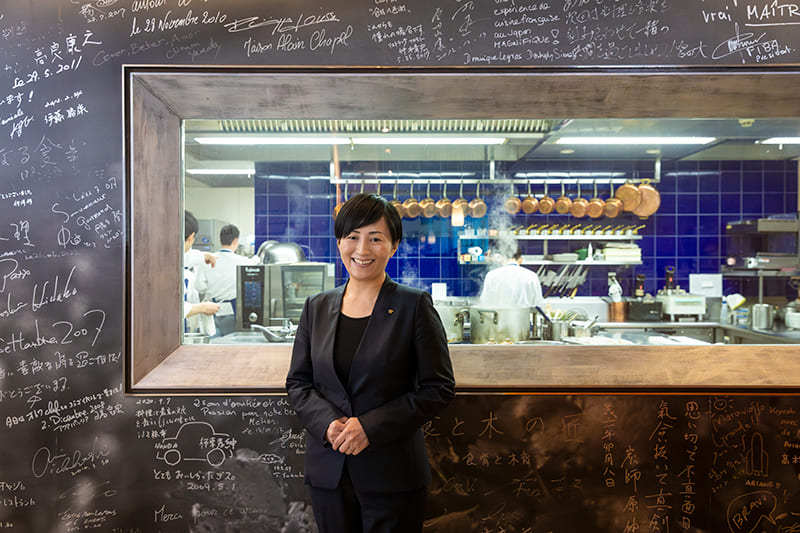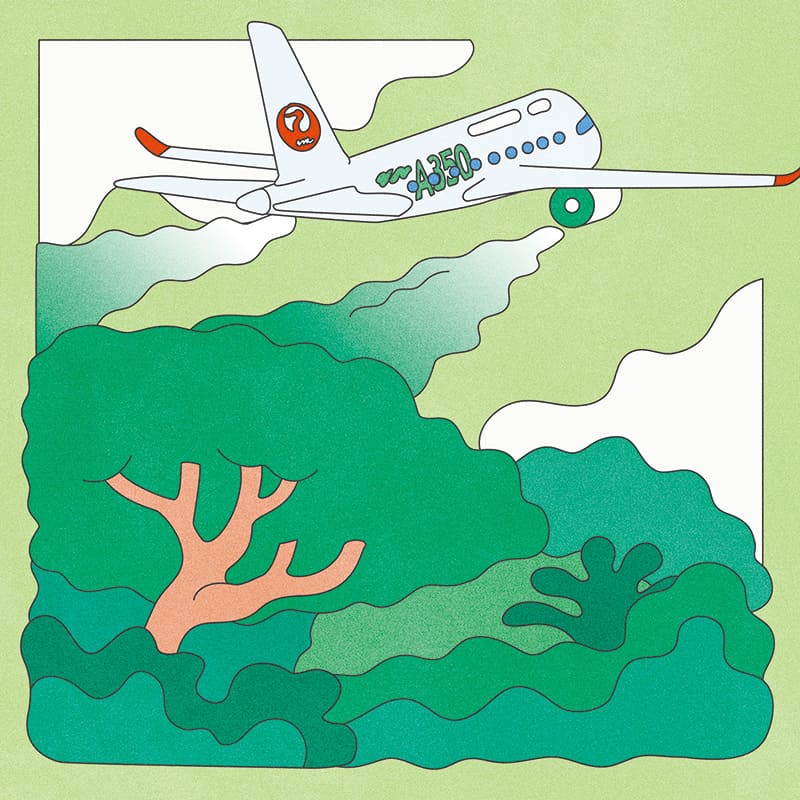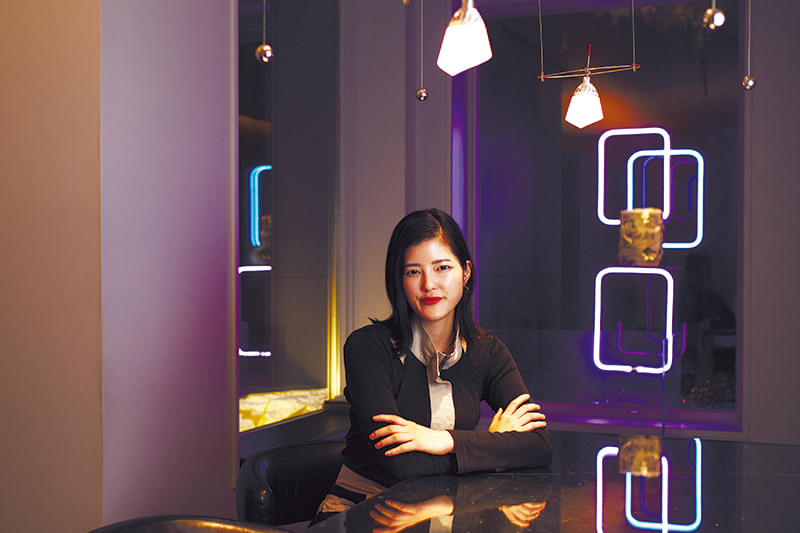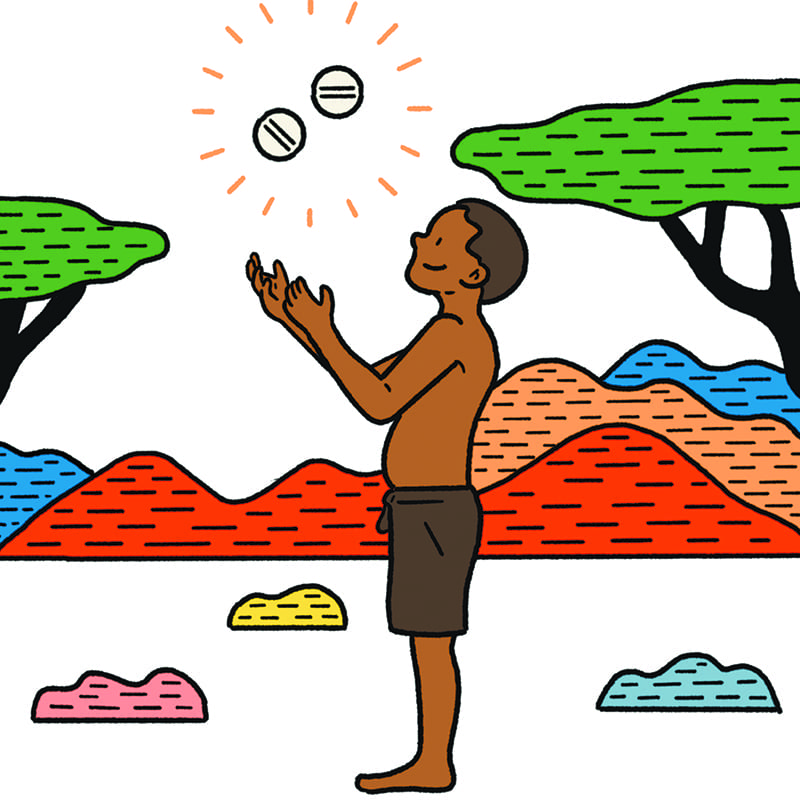February 21, 2025
JICA’s initiatives to support women’s empowerment
COOPERATION AGENCY
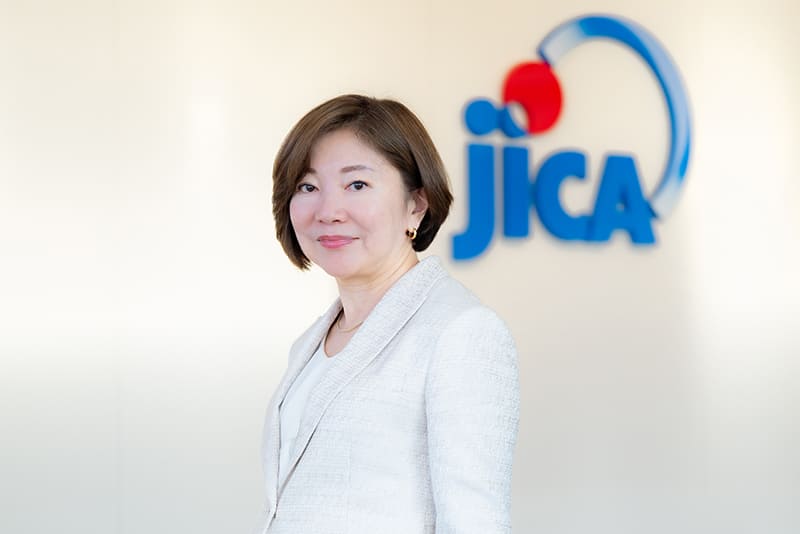
As the incorporated administrative agency in charge of administering Japan’s official development assistance (ODA), the Japan International Cooperation Agency undertakes international cooperation in developing countries. Guided by its vision of “Leading the world with trust,” JICA is a major presence in the international community as an organization supporting socioeconomic development in developing countries.
Katsura Miyazaki took up the post of executive senior vice president at JICA in May 2024. JICA is engaged in proactive efforts to improve the proportion of women in management roles: In its 5th Medium-term Plan (April 2022-March 2027), the organization set a target of at least 27% for the ratio of women in managerial positions, but had already nearly achieved that by the end of fiscal year 2023, when the figure stood at 26.9%. As it has already achieved the target set by the Japanese government for the ratio of women in managerial positions at incorporated administrative agencies as a whole (18% by March 2026) as well, it would be fair to describe JICA as an organization with a positive attitude toward the promotion of women’s empowerment.
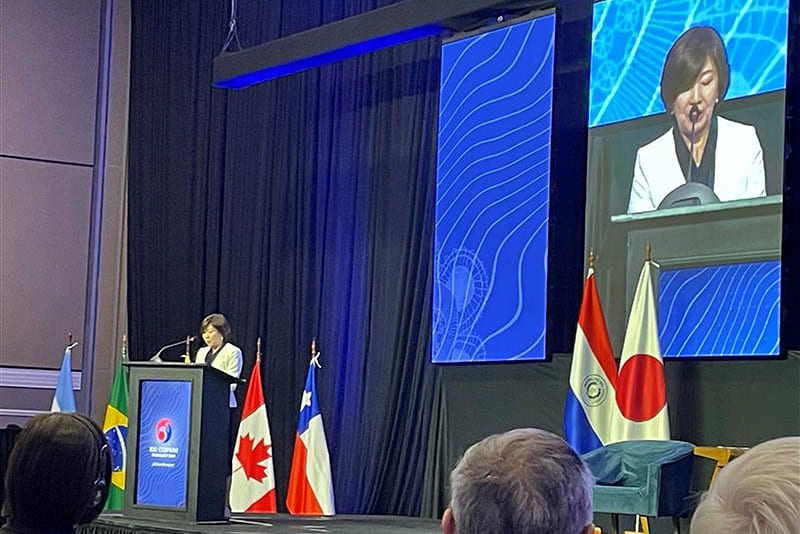
COURTESY: JICA
“The executive senior vice president position was advertised publicly,” Miyazaki said. “I’m always telling my female direct reports and other junior female colleagues that if they have a chance of a more senior post, they should take a shot at it, and that their whole perspective will change if they do. I realized that not taking on the challenge would be inconsistent with my stance, given that I met all the application requirements, so I applied. Even at JICA, it’s certainly true that years ago, some departments were easier for men to get into, like those related to civil engineering, where technical expertise is required. However, overall, there’s no discrimination in the way staff are assigned to departments, and people now achieve success even in those fields regardless of gender. I’d be delighted if my appointment to the post of executive senior vice president could help, in however small a way, to change norms in Japanese society, where there’s a tendency for men to dominate management positions in particular.”
For JICA staff, who provide development assistance to developing countries, experience in overseas postings to developing countries is essential in order to succeed in a managerial role. However, many women miss out on the chance of overseas postings due to such factors as the timing of when they have children. To ensure women do not lose out on opportunities to be posted to other countries, JICA is working on solving this problem. The organization has introduced an innovative change under which all new graduate entrants are posted overseas as their third departmental assignment, or thereabouts, after joining JICA, thereby increasing career predictability and making it easier for staff to plan for the future.
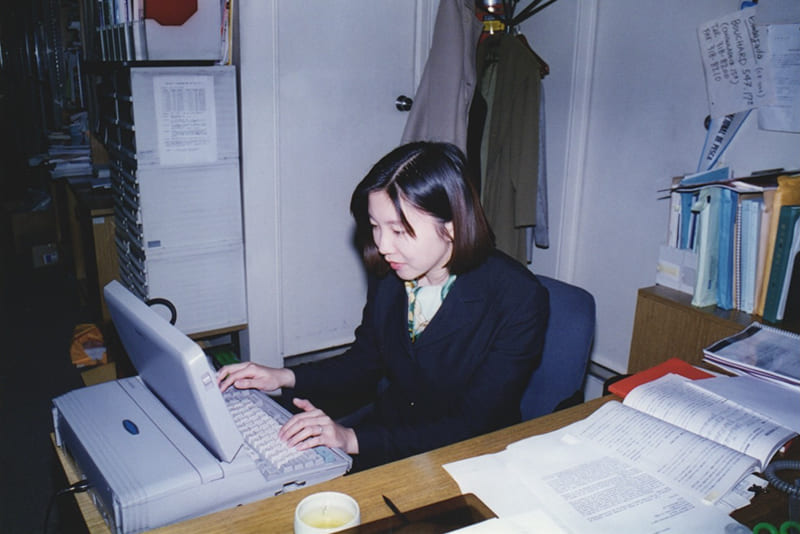
COURTESY: JICA
Looking at JICA’s operational side, gender equality and women’s empowerment is positioned as one item on the JICA Global Agenda; as well as incorporating diverse viewpoints — including those of women — into the pursuit of its projects, the organization undertakes cooperation aimed at helping women to fulfill their economic and social capabilities. Having formerly served as senior director of the Office for Gender Equality and Poverty Reduction, Miyazaki herself was one of those involved in promoting such cooperation.
“For example, when JICA was working on the Delhi Metro subway system project in India, we considered its user-friendliness for women, including not only increasing the number of female station staff to ensure women can feel at ease using it, but also devising ways to ensure that the saris they wear don’t get caught up in escalators,” she explained. “Introducing women-only cars means women can travel to school or hospital or to work with peace of mind, which helps support female participation in society. By nurturing female station staff and conductors, and ensuring they flourish in the workplace, we were also able to create role models for girls. Opening a subway reduces traffic jams and fosters an eco-friendly society, which is vital as well, of course. But at the same time, there’s also the fact that it helps to create an environment in which women can feel at ease in daily life, and makes it easier for them to participate in society. It’s that latter aspect to which JICA attaches importance.”
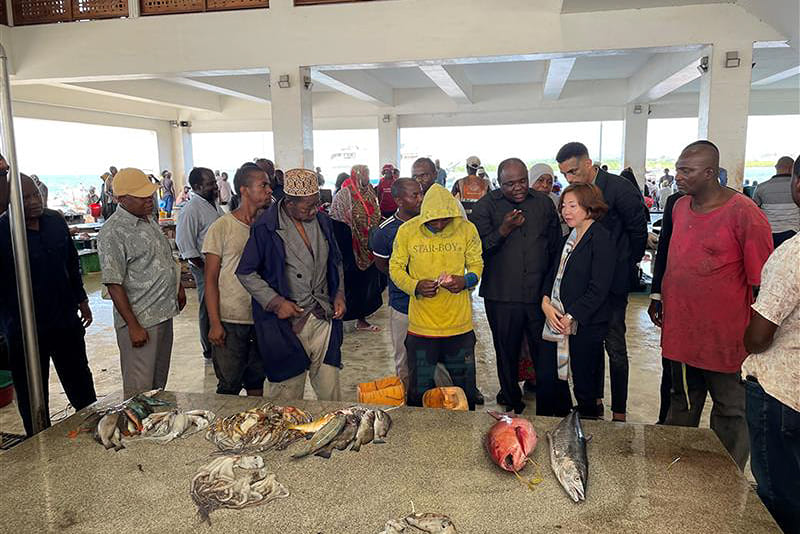
COURTESY: JICA
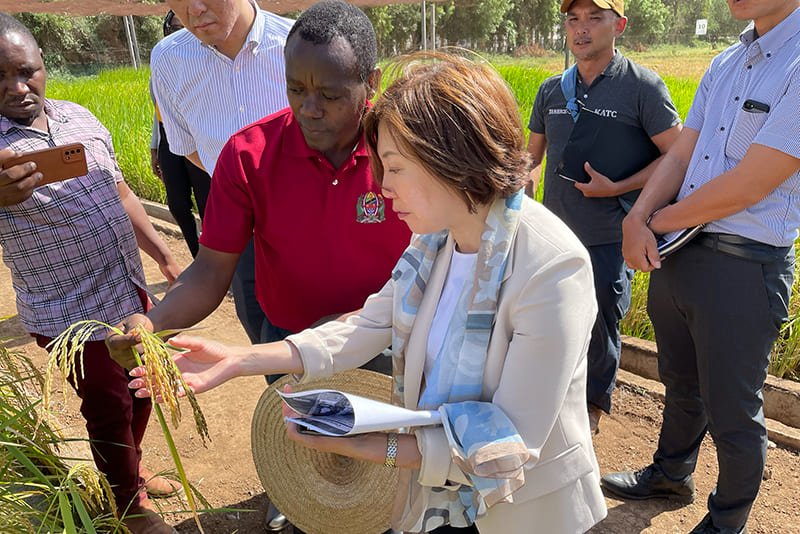
COURTESY: JICA
In Tanzania, JICA has spent 40 years providing cooperation in the development of irrigation facilities and the improvement of rice cultivation technology. While this does naturally involve developing facilities and providing guidance on cultivation methods, Miyazaki says that changing ways of thinking among farmers is also crucial.
“When we hold training courses over there, it’s generally only men who take part, but in many cases, it’s women who are performing the agricultural labor. In this kind of situation, we ask the partner government to assemble a group in which women are predominant. Or we have married couples attend together and ensure that the men properly learn about the size of the role played by women in agricultural settings in which women bear a substantial burden. There’s also a tendency for women to make more effective use of the income they earn by putting it toward such things as their children’s education. At JICA, we believe it’s important not to forget women on the ground and to conduct activities that involve them, in order to improve the situation in developing countries, and that’s what guides our practice.”
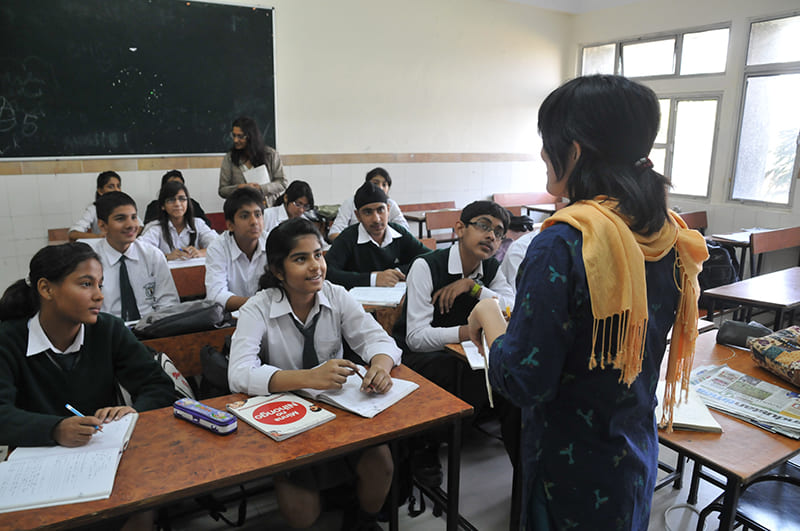
PHOTO:OSAMU FUNAO/JICA
It is a fact that Japan still lags some way behind many other countries in terms of female participation in society, ranking 118th out of 146 countries in the Global Gender Gap Index published by the World Economic Forum in 2024. Miyazaki voiced her discomfort that virtually all of the many top corporate executives she meets in the course of her work are men. JICA also takes care to ensure that those appearing as its representatives at symposiums or participating in negotiations are not exclusively male, she said.
“I think a major factor in why Japan is an underdeveloped country from the perspective of women’s empowerment is its deep-seated societal norms, in terms of the fact that people around us — and sometimes even we women ourselves — think ‘a job with this kind of responsibility’s probably impossible for a woman’ before we’ve even given it a try. I myself have a thick skin on that score — I didn’t hesitate to become a working member of society and work in the same way as men, nor did my family or others try to put me off taking on such jobs. At the same time, not everyone thinks like me, or has supportive people around them, and I think a lot of women still find it hard to maintain the ambition to proactively go out and win positions, due to the impact of long-standing societal norms. Even in JICA, when we conduct questionnaires, the results show that fewer women than men aspire to gaining promotion. I think one factor behind this is that men have more opportunities to come into contact with those in managerial and executive positions, so it’s easier for them to regard promotion as the natural course of things. Accordingly, within our organization, we’re now trying to increase those kinds of opportunities for women as well, and give them more chances to think properly about their career development by having women in senior positions mentor more junior female staff. The need to transform attitudes among men is undeniable, but changing ways of thinking among women is also key, so I’m keen to make effective use of my being in a position where I can readily give my backing to such activities.”
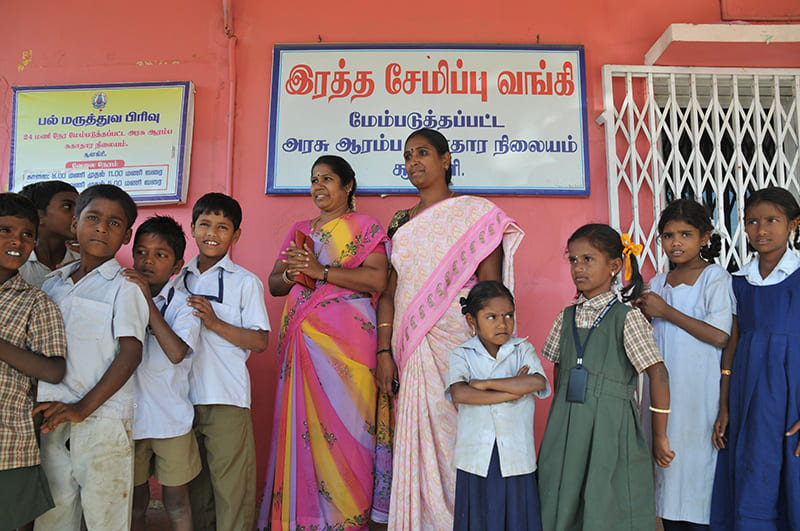
PHOTO:OSAMU FUNAO/JICA
JICA
The Japan International Cooperation Agency. Established in 1954. It is an incorporated administrative agency under the jurisdiction of the Ministry of Foreign Affairs, responsible for the integrated administration of Japan’s official development assistance. It engages in international cooperation with developing countries in all kinds of fields, including technical cooperation, financial assistance, urban and regional development, and emergency disaster relief. Guided by its vision of “Leading the world with trust,” JICA is a major presence in the international community as an organization supporting inclusive, sustainable, high-quality growth without damaging the natural environment.
KATSURA MIYAZAKI
Executive senior vice president and chief sustainability officer at JICA. Born in Tokyo in 1965. After graduating from university, she joined one of Japan’s major commercial banks. In January 1992, she joined the Japan International Cooperation Agency. In 2016, she was appointed senior deputy director general and senior director of JICA’s Office for Gender Equality and Poverty Reduction in the Governance and Peacebuilding Department. She subsequently held the post of chief representative in JICA’s Thailand Office from November 2018 and director general of the Governance and Peacebuilding Department from October 2020. In October 2022, she was appointed senior vice president. She has held her current position since May 2024.
JICAの「女性活躍支援」の取り組み。
独立行政法人国際協力機構(以下JICA)は、日本の政府開発援助(ODA)を一元的に行う実施機関であり、開発途上国への国際協力を行なっている。組織のビジョンとして《信頼で世界をつなぐ》を掲げ、開発途上国の経済・社会の発展を支援している。宮崎桂はそのJICAの副理事長に2024年5月に就任した。JICAは女性管理職割合の向上に積極的に取り組んでおり、第5期中期計画期間(2022年4月~2027年3月)中に女性管理職比率を27%以上とすることを目標に掲げていたが、2023年度末には26.9%とほぼ達成。政府が定めた独立行政法人等全体の目標値(2026年3月までに18%)も既に到達している。
JICAが実施している事業面に目を向ければ、「ジェンダー平等と女性のエンパワメント」をJICAグローバルアジェンダ(課題別事業戦略)の一つに据え、事業の推進において女性も含めた多様な視点を取り込むと共に、女性の経済的・社会的な能力発揮を推進する協力を実施している。かつてジェンダー平等・貧困削減推進室長という役職にあった宮崎も、この協力を推進したひとりだ。
Return to Sustainable Japan Magazine Vol. 45 article list page

